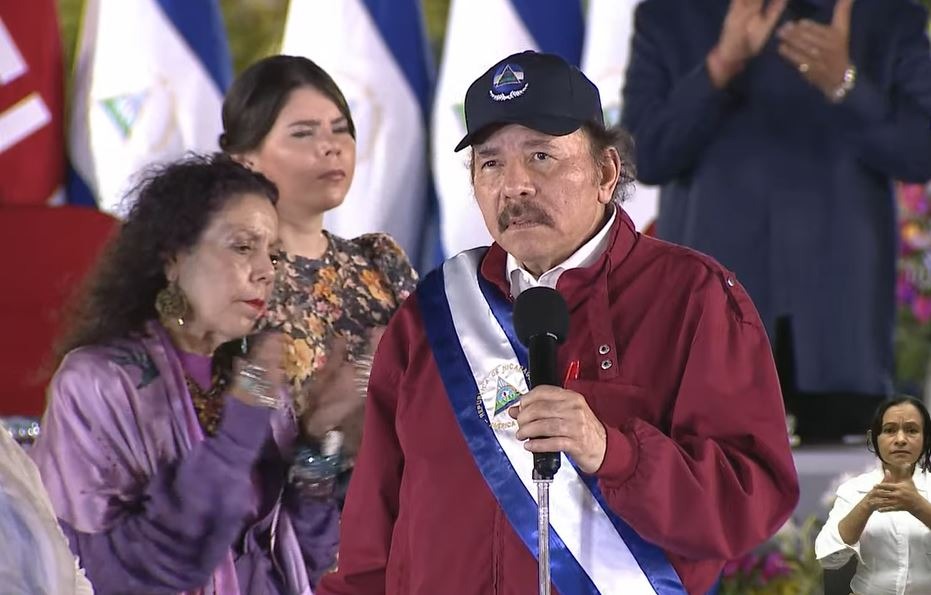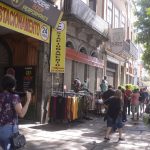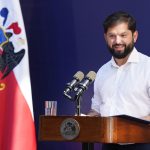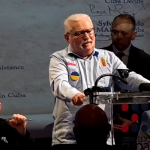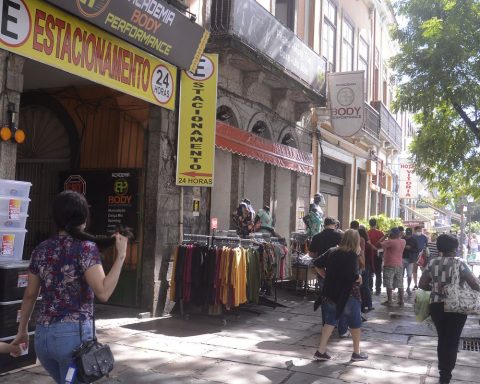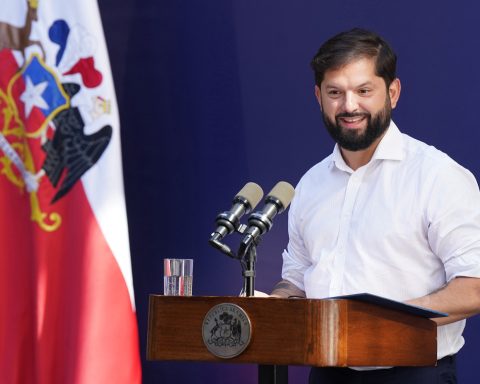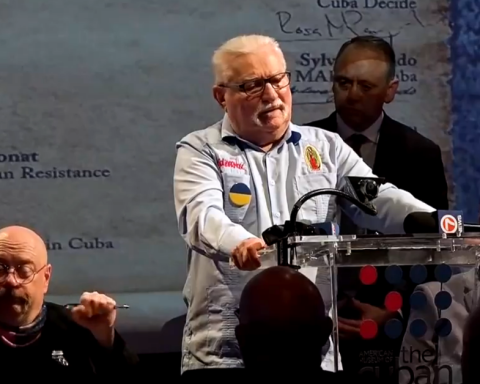*The most significant changes include the imposition of Rosario Murillo as “Co-President.”
*They subject all the powers of the State and the Comptroller General of the Republic to the designs of the Executive and even call them, simply, “organs.”
*Arranges the Army to repress in the streets, together with the Police and constitutionalizes the denationalization of Nicaraguans
The dictator Daniel Ortega ordered a partial reform of the Constitution, modifying 130 articles to “adapt” the supreme law to his size and consolidate his totalitarian regime.
Among the reforms, it establishes a two-headed presidency with the position of “Co-president”, extends the presidential term to six years, elevates the use of the Army to repress to constitutional rank and legalizes paramilitaries under the name of “Voluntary Police.”
The reforms to the Magna Carta, which include additions to 130 articles and the repeal of another 38, also fulfill the dream of Rosario Murillo, current vice president, by making her “Co-president” and sharing the position with Ortega.
The text of the reform establishes that the changes will come into force after their approval in the second legislature, scheduled for January, after the legislative recess for Christmas and New Year.
The law does not clarify whether Ortega and Murillo will conclude their current terms, originally five years, or if the changes will apply immediately. If so, Murillo would take over as Co-president starting in January, and the next presidential elections would be delayed until 2027. In addition, the mayors’ mandate would be extended one more year, becoming six years.
Most dangerous changes
Among the proposed changes, the modification to article 13 stands out, which establishes as national symbols, in addition to the anthem and the national flag, the flags of the anti-imperialist struggle of General Augusto C. Sandino and the Sandinista Popular Revolution. Thus, the regime imposes on Nicaraguans the obligation to pay tribute to the red-and-black flag.
Article 14 maintains that “the State is secular and ensures freedom of religion,” but adds a controversial paragraph: “Under the protection of religion, no person or organization can carry out activities that threaten public order. Religious organizations must remain free from foreign control. This threatens to further restrict churches and religious organizations, including the subordination of the Catholic Church to the Vatican, which is, in political terms, just another state.
Related news: Ortega reforms the Nicaraguan Constitution to name Murillo “co-president”
Another alarming change is the disappearance of the right to Nicaraguan nationality in any circumstance. The reformed article 15 is limited to defining that “Nicaraguans are nationals or nationalized”, and article 17 establishes that “traitors to the homeland lose Nicaraguan nationality”, thus legitimizing statelessness in the Constitution.
Control of the media
Article 66 now establishes that “Nicaraguans have the right to truthful information,” but introduces the obligation not to “attack fundamental principles contemplated in this Constitution.” Furthermore, article 68 provides that “the State will ensure that the media are not subjected to foreign interests or disseminate false news that violates the rights of the people,” granting the regime legal tools to censor and persecute journalists.
The Army under the direct command of Murillo
Article 92 redefines the Nicaraguan Army as “the uniformed and organized people” under the command of the Presidency of the Republic, which includes Murillo as “Co-president.” According to article 94, the Army may intervene in support of the National Police “when the stability of the Republic requires it”, legalizing military repression against civil demonstrations.
The regime also incorporates at the constitutional level the “Volunteer Police”, an auxiliary body made up of civilians, which was already used during the bloody “operation cleanup” of 2018. At that time, Ortega justified the paramilitaries as “volunteer police.”
Murillo achieves her dream of being president
The creation of a shared presidency is the culmination of Murillo’s obsessive desire for power. According to the reformed article 133, “the Presidency of the Republic is made up of a co-president and a co-president elected by universal suffrage.”
Related news: URGENT: Ortega sends another initiative to reform the Constitution of Nicaragua
“The Co-Presidents may appoint Vice Presidents, who will perform the functions assigned to them,” the new Constitution will say in its article 138, without specifying how many vice presidents would be designated, nor the tasks they would assume. Nor does it establish whether the vice presidents will be one for each Co-President.
Reductionon of magistrates in the Supreme Court
The reformed article 157 reduces the number of judges in the Supreme Court of Justice (CSJ) from 16 to 9, of which at least five must be women. In addition, article 178 extends the mandate of municipal mayors to six years.
Opposition reactions
Political scientist and opposition leader Félix Maradiaga described the reforms as “a ruthless attack against democracy.” According to Maradiaga, these reforms “formalize on paper the systematic violations of human rights that the regime has committed for years.”
For his part, Héctor Mairena, opposition leader in exile, stated that the reforms deepen “the totalitarian state of Ortega and Murillo.”
